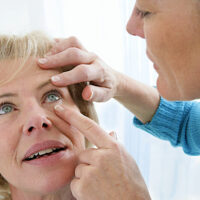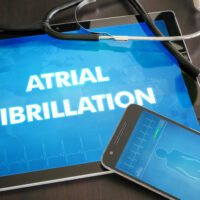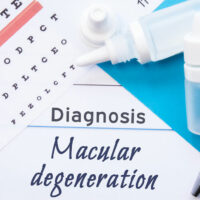6 Useful Tips to Manage Eczema

Eczema is a common skin disease that results in dry, itchy skin. It is also called atopic dermatitis. Dermatitis, in general, is a term used to refer to skin conditions that become a source of irritation. The irritation makes the skin peel off and causes constant discomfort, followed by rashes all over. Besides itchy rashes, eczema sometimes causes tiny bumps on the skin. But one can manage the condition efficiently.
What causes eczema?
There is no clear cause for this skin disease. Some experts believe that eczema occurs when people inherit defective genes from their parents. In most people, the first signs appear before the age of five. And as the child grows, the condition either vanishes or stays the same. Moreover, anyone can be diagnosed with the disorder, irrespective of skin color. But people with dry skin or working in hot or icy environments are more susceptible. Those at risk should look out for the symptoms and visit a doctor on noticing them.
Tips for managing eczema
While the condition requires treatment, one can manage mild cases with simple home remedies and lifestyle changes. A few tips are discussed below:
Moisturize often
Dry skin is one of the most common signs of eczema, and one way to get rid of it is to moisturize frequently. Moist and hydrated skin reduces itchiness and other discomforts, making the condition more manageable. However, it is crucial to use the right product. Doctors recommend moisturizers with natural ingredients and without chemicals. It is because some chemicals work as irritants, triggering an immune response and worsening the symptoms.
Resist the urge to scratch
Some forms of eczema cause tiny fluid-filled blisters between the layers of the skin, which can last for up to a month. While these blisters can itch, patients must refuse the urge to scratch. Scratching can cause the blisters to release fluids, worsening the irritation. When these blisters emit fluids, they can also cause a burning sensation. If one experiences the urge to scratch, they can avoid it by getting distracted by something else. Some people rub their hands over the itching areas to find relief. But rubbing, too, does not do any good. It spreads the fluids all over the hands and worsens the skin disease.
Determine the triggers
This can take some time, but determining what triggers eczema flares is crucial. It could be anything. For some people, sweaty palms are the trigger, while it is hard water for others. Flares could also be caused due to direct contact with jewelry, certain plants, or by inhaling fragrances. These triggers can go undetected for years, making it challenging to manage such skin diseases. To determine the cause, one can maintain a journal and note down the times when they get severe itching or rapid skin drying. After a few days, it will help point out what repeatedly causes the episodes. Once patients find the exact cause or trigger, they should eliminate it from their routine. Avoiding the direct application of chemical products on the skin and avoiding exposure to extreme temperatures are a few ways to keep flare-ups in check.
Avoid specific treatments
Some treatments can cause eczema as a side effect. Though they do not directly lead to this skin disease, they induce dry skin, which triggers an episode. So, individuals undergoing treatment for a health condition must inform the doctor about their eczema in advance. It will help the healthcare provider revise the treatment plan depending on the severity of the symptoms. Sometimes, they may also suggest alternatives to avoid complications.
Avoid stressful situations
Mental disorders like OCD, high anxiety, and stress also trigger eczema episodes. The itching becomes a compulsive behavior to let out all the accumulated stress. Therefore, patients should avoid stressful situations as far as possible. When faced with a problem, one can try distracting themselves by drinking water, taking a short walk, taking a small break, or meditating. Developing new hobbies or habits can also help deal with stress effectively. A descriptive mental health treatment plan may be required if a person scratches every time they are stressed. Such individuals can consult a doctor to find a solution.
Avoid standing for a long time
Sometimes, this skin disease affects specific body parts with poor blood flow. As a result, it is common for people who stand for long periods and seniors with weaker veins tend to develop eczema on their ankles, causing them to become itchy, discolored, and swollen. The discolored skin sometimes becomes pigmented, looking like an injury. When scratched, the area bleeds and becomes hard and red. If a job or chore requires a person to stand for long periods, they should rest regularly. Moreover, while standing for long, it is advisable to lift the legs occasionally to promote blood flow. Besides following these practices, patients must keep their ankles moisturized and rested as much as possible to manage the symptoms and flare-ups effectively.
It is essential to note that there are different types of eczema, each with different symptoms. For instance, in nummular eczema, the skin develops dry, itchy red spots, which can be bulgy and often appear in groups all over the body. It is often confused with ringworm as both have the same symptoms. The types of eczema commonly observed in people are atopic dermatitis (eczema), dyshidrotic eczema, hand eczema, nummular eczema, neurodermatitis, stasis dermatitis, and contact dermatitis. Irrespective of the type, the skin becomes rough and flaky through constant itching and irritation. And redness and rashes remain for a long time, weakening the skin. The affected skin does not offer much protection from external microbes. Hence, it is best to visit a doctor to learn how to manage the skin disease and minimize discomfort in the long run.





